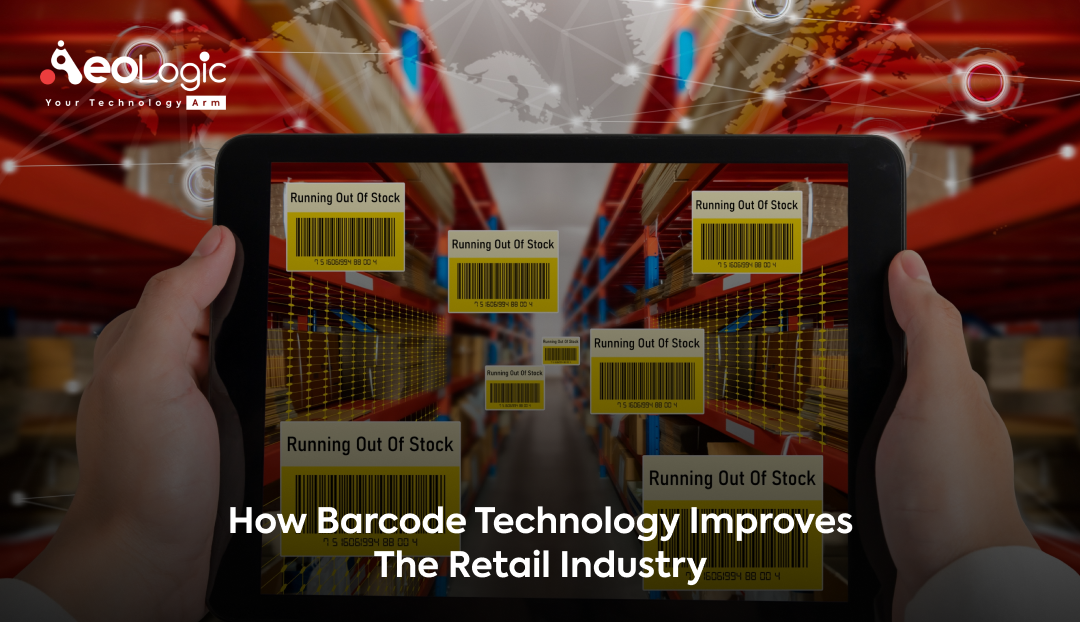Before we delve into the benefits, let’s first understand how barcode technology in retail industry works. A barcode is a method of representing data by varying the spacings and widths of parallel lines. These barcodes are scanned by barcode readers, which then convert the lines into data that can be read and processed by a computer. This simple yet effective technology has found a plethora of applications in the retail industry.
- Barcode Printer Market Size is set to surpass USD 4.5 billion by 2027, according to a new research report by Global Market Insights Inc.
- The Global Barcode Printer Market size is expected to reach $6.8 billion by 2029, rising at a market growth of 7.6% CAGR during the forecast period.
Types of Barcode Scanners Used in Retail
In the world of barcode technology in retail industry, not all scanners are created equal. The type of scanner used can vary depending on the needs of the retailer and the specific application. Here’s a closer look at some of the most common types of barcode scanners utilized in the retail sector:
1. Handheld Scanners
Handheld scanners are the backbone of many retail operations. They’re often the first image that comes to mind when we think of barcode scanning. Simple in design and easy to use, they’ve become a staple in many stores worldwide.
- Popular and versatile: These are perhaps the most recognized type of barcode scanners.
- User-friendly: Operators can easily point and scan items without any hassle.
- Mobility: They offer the flexibility to move around the store, making them ideal for inventory checks and in-store operations.
2. Fixed Mount Scanners
For retailers who handle a large volume of products, especially at checkout counters, fixed mount scanners are a godsend. These scanners are typically mounted in one place and can rapidly scan items, streamlining the checkout process.
- High-speed scanning: Ideal for high-volume scanning, like at checkout counters.
- Automated operations: They automatically scan items when they pass in front of the scanner, requiring minimal human intervention.
3. Wireless Scanners
In the age of connectivity, wireless barcode scanners have emerged as a popular choice. They combine the convenience of handheld scanners with the added benefit of wireless data transmission, offering unparalleled flexibility.
- Flexibility: These scanners can transmit data without the need for wires, offering more mobility.
- Range: They can operate at varying distances from the base station, allowing for more extensive in-store operations.
Also Read: RFID Vs Barcode: Why RFID is Better for Asset Tracking
4. Mobile Computer Scanners
Retailers looking for a holistic solution often turn to mobile computer scanners. These devices are more than just barcode readers; they’re mini-computers equipped with scanning capabilities, making them multi-functional tools for retail operations.
- Integrated technology: These devices combine the functionality of a mobile computer and a barcode scanner.
- Multi-tasking: They are perfect for retailers who want to scan barcodes and simultaneously access databases, email, and other applications.
5. 2D Imagers
With the rise of QR codes and other 2D barcodes, 2D imagers have become an essential tool for modern retailers. They can interpret more complex codes, expanding the realm of possibilities for retailers in terms of the information they can access and provide.
- Advanced scanning: Unlike traditional scanners that read 1D barcodes, these can read both 1D and 2D barcodes.
- Versatility: They can scan barcodes from screens, making them ideal for e-coupons and mobile ticketing.
Understanding the different types of barcode scanners available in the market can help retailers choose the best fit for their operations, ensuring they maximize the benefits of barcode technology in retail industry.
Also Read: How Is Barcode Technology Used in Stock Control?
Benefits of Barcode Technology in Retail Industry
Barcode technology in the retail industry has been a game-changer, revolutionizing various aspects of how businesses operate and interact with customers. The following are some of the key benefits of implementing barcode technology in the retail industry:
1. Improved Inventory Management
In the ever-evolving landscape of retail, inventory management remains a central concern for businesses. From ensuring stock levels meet customer demand to minimizing wastage, effective inventory management is pivotal. Here’s where barcode technology in the retail industry comes into play, offering innovative solutions to traditional challenges.
- Barcode technology has revolutionized inventory management in retail.
- It allows for real-time tracking of products, reducing the likelihood of stockouts or overstock situations.
- Retailers can easily track the movement of products within the store and in the supply chain.
- This ensures that the right products are in the right place at the right time, ultimately improving customer satisfaction.
2. Enhanced Customer Experience
Barcode technology in the retail industry has stepped in to fill this demand, acting as a bridge between customer expectations and business deliverables. By seamlessly integrating into the shopping experience, barcodes have become an unseen hero, ensuring that customers leave stores with a smile.
- Barcode technology in retail industry has significantly improved the customer experience.
- Customers can easily find product information and prices by scanning the barcode.
- This reduces the need for customers to ask staff for information, allowing them to make informed purchase decisions.
- Faster checkout times, as cashiers can quickly scan products, reducing the time customers spend in line.
3. Streamlined Operations
Efficiency and smooth operations can be the difference between a successful business and one that struggles to keep up. Barcode technology in the retail industry has been a game-changer in this regard. By acting as a bridge between physical products and digital data, it ensures that operations flow seamlessly from the stockroom to the sales floor and beyond.
- Barcode technology streamlines operations, making processes more efficient and cost-effective.
- It reduces the need for manual data entry, minimizing human error.
- Retailers can easily track sales and monitor trends, allowing for better decision-making.
- This also makes it easier to implement promotions and discounts, as the information is readily available.
4. Enhanced Security
With increasing threats of counterfeit products, theft, and fraud, retailers need robust solutions to safeguard their assets and ensure customer trust. Enter barcode technology in the retail industry. This powerful tool offers a layer of security that’s hard to beat, acting as a virtual guardian for products from the warehouse to the checkout counter. Here’s how:
- Barcode technology in retail industry also enhances security.
- Retailers can easily track the movement of products, reducing the likelihood of theft.
- This technology also helps in authenticating products, ensuring that customers receive genuine products.
5. Compliance with Regulations
In an ever-evolving world, regulations are becoming more stringent to ensure consumer safety and maintain industry standards. Barcode technology in the retail industry is at the forefront of helping businesses adhere to these regulations. Its precision and accuracy ensure that products meet the necessary standards, providing both retailers and consumers with peace of mind.
- Barcode technology helps retailers comply with regulations and industry standards.
- It ensures that products are labeled correctly, with the right information.
- This is particularly important for products that have specific labeling requirements, such as food and pharmaceuticals.
Related post for you! QR Code Attendance Tracking for Businesses and Classrooms
Final Words
Barcode technology in retail industry has revolutionized the way businesses operate, providing a plethora of benefits that range from improving efficiency to enhancing customer experience. The ability to track products in real-time, streamline operations, and enhance security has made barcode technology an indispensable tool in the retail industry. As technology continues to evolve, we can expect to see even more innovative applications of barcode technology in retail, further improving the sector and driving its growth.
As we embrace the future of retail, partnering with pioneers in technology becomes crucial. Trust Aeologic Technologies to be at the forefront, steering your retail business towards success.






